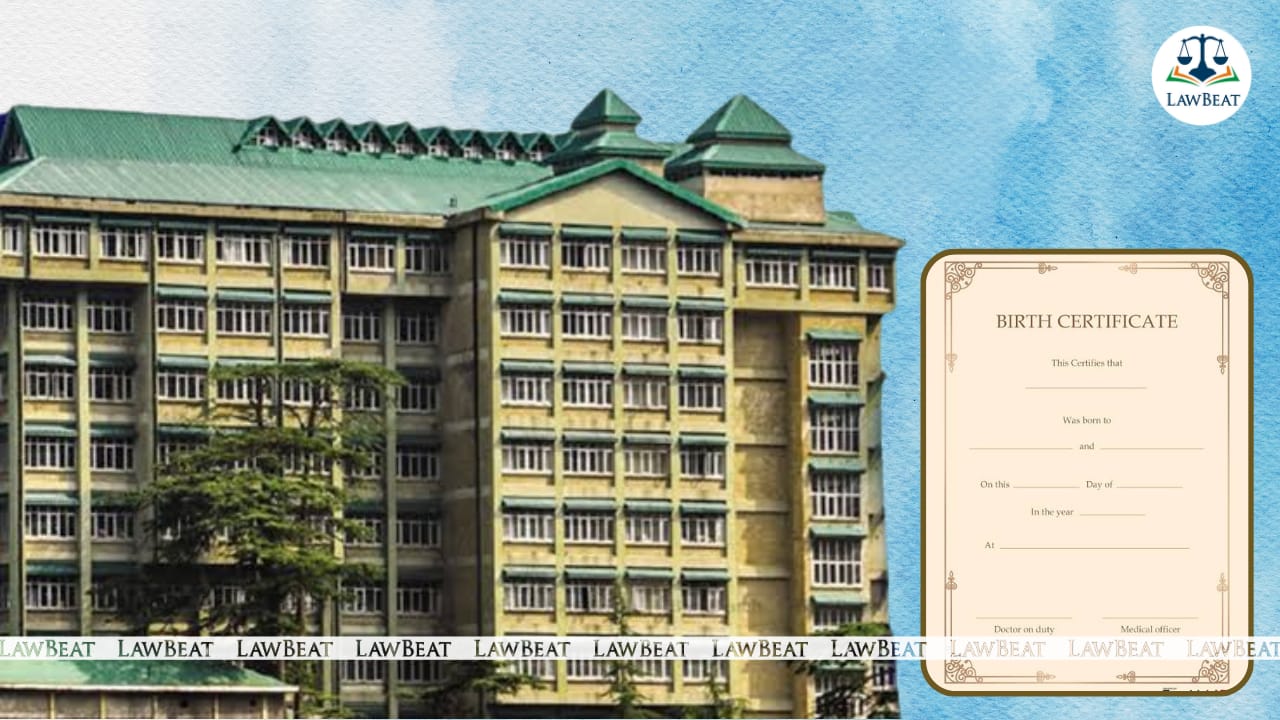Children Born from Invalid Marriages Cannot Be Denied Birth Registration, Entitled to Equal Rights : Himachal Pradesh HC

The court emphasised that the children are “living beings whose existence should be acknowledged by law”
The Himachal Pradesh High Court ruled that children cannot be denied birth registration and legal recognition simply because they were born out of an invalid or unregistered marriage. The court emphasised that the rights of such children must be preserved, independent of the legal status of their parents' marriage.
Justice Jyotsna Rewal Dua, presiding over the court, observed, “The relationship between the parents may not be sanctioned by law but the birth of a child in such relationship has to be viewed independently of the relationship of the parents. A child born in such relationship is innocent and is entitled to all the rights which are given to other children born in valid marriage.”
The petition, filed on behalf of three minor children (aged 12, 9, and 5) through their mother, sought to have the children’s names recorded in the Panchayat's Birth and Pariwar (Family) Registers. The petitioners confined their request to the registration of their names in these records, without seeking formal recognition of their parents' marriage. The petitioners’ mother asserted that her marriage to the children’s father was solemnized in 2011. At the time, the father was still legally married to his first wife, who was in poor health and consented to the second marriage. Despite the marriage's lack of legal validity under Section 4(a) of the Special Marriage Act, 1954—which prohibits marriage if one spouse is already living—the children’s parents have been living together as husband and wife. The Panchayat authorities, however, refused to record the children's births, citing the parents' unregistered marriage as invalid under Section 4(a) of the Special Marriage Act. Additionally, they referenced Rule 21(2) of the Himachal Pradesh Panchayati Raj General Rules, which governs entries in the Pariwar Register and registration of births and deaths, asserting that these rules preclude registration of children from invalid marriages.
The court clarified that the objections raised by the respondents were legally unfounded. The court noted that Rule 21(5) of the H.P. Panchayati Raj General Rules requires Panchayat authorities to register births in accordance with the Registration of Births and Deaths Act, 1969, without restrictions on children from invalid marriages.
Furthermore, the court pointed out that Section 16 of the Hindu Marriage Act, stating that, “With the amendment of Section 16(3), the common law view that the offsprings of marriage which is void and voidable are illegitimate `ipso-jure' has to change completely. We must recognize the status of such children which has been legislatively declared legitimate and simultaneously law recognises the rights of such children in the property of their parents. This is a law to advance the socially beneficial purpose of removing the stigma of illegitimacy on such children who are as innocent as any other children.”
The court underscored that the petitioners' request concerned only the registration of the children's names, not the validation of their parents’ marriage. “The objection of the respondents that since the marriage between the parents of the petitioners cannot be registered in view of provisions of Section 4(a) of the Special Marriage Act and on that count names of the petitioners cannot be entered in the Panchayat Record is clearly misconceived and violates the import of Section 16(1) of the Hindu Marriage Act,” the court said.
The court also highlighted that the children’s father and his first wife had jointly stated before authorities that they had no objections to registering the children’s names in the Panchayat records.
Concluding that these children are “living beings whose existence should be acknowledged by law,” the court ordered that their names be entered in the Panchayat’s Birth and Pariwar Registers within five weeks.
Cause Title: X v State of H.P. & others [CWP No. 2840 of 2023]
